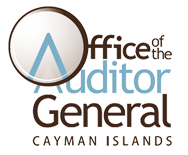The Government has shifted many services online but more customer improvements are possible
The report “The Government’s shift to online services” was issued today by the Office of the Auditor General (OAG).
The report states that the Government first established an e-government initiative in 2010 and that many government services are now available online but there is scope for improvement.
Auditor General Sue Winspear says, “It is pleasing to report that a large number of government services are available online, allowing the people of the Cayman Islands to conduct essential government business from the comfort and safety of their homes.” Ms. Winspear continues, “There has been a marked increase in shifting government services online in the recent past, and Cayman now compares well to the top 20 online services provided by Governments globally.” Ms. Winspear adds, “I note that some services like environmental permits and land title registration applications are not available online. In addition, some services like applying for a driver’s license still cannot be fully completed online. I urge the Government to work towards providing these, and more services, online.”
The report states that the E-Government Unit has played an integral role in shifting the Government services online by providing specialist and technical advice. However, the Government needs to do more to improve the e-government programme’s strategic direction and oversight.
Ms. Winspear says, “The Government drafted an e-Government strategy in 2015 but never finalised it. One of the main projects in the 2015 draft strategy was the development of the national identity (ID) database and this project is significantly delayed and still requires primary legislation before it can be introduced.” She adds, “At the moment, people have to enter and re-enter personal detail into many separate online systems, having a national ID system will eliminate this need making it more efficient and effective for the public.”
Ms. Winspear adds, “In 2021, the Government started drafting a new E-Government Strategy, a welcome development. However, the draft strategy has significant gaps, such as any references to driving improved efficiency. I have noted a recent increase in software write-offs across the Government, and an overarching strategy should help alleviate this. I urge the Government to further develop, finalise and publish a new strategy as soon as possible.”
The report states that it is unclear if the Government has achieved value for money from its investment in shifting services online, mainly because the costs and benefits of online services are unknown.
Ms. Winspear adds, “The Government is starting to collect data on customer satisfaction in using online services, but has not yet started to systematically monitor and report on this. This is important to determine how easy customers find online services to use and will help identify what improvements are needed.” The Auditor General goes on to say, “We also found that the Government is not capturing the cost of designing, developing and delivering its projects for online services. This is a significant gap as it is essential information for demonstrating value for money.”
More information about the report can be obtained by contacting Sue Winspear at (345) 244-3201 / 938 3201.
Notes to the editor:
- The Government first announced its e-government initiative in 2010, which was called e-business at that time. However, the initiative did not have any dedicated staff. The Government relaunched the e-government programme in 2013 and in December 2014, appointed the first E-Government Director, reporting to the Cabinet Secretary. After the 2017 election, the Government created a separate government department, the E-Government Unit (EGU), under the Ministry of Commerce, Planning and Infrastructure (MCPI). The EGU was set up to provide a common focus for the Government’s shift to online services, and to support business owners in project management and business process analysis.
- Following the Government reorganisation effective 1 July 2021, MCPI was renamed as the Ministry of Planning, Agriculture, Housing & Infrastructure and the EGU is now under the Ministry of Investment, Innovation & Social Development.
- The Government’s 2018–19 and 2020–21 Strategic Policy Statements (SPS) included the strategic broad outcome “A Stable, Accountable Government.” This included a specific outcome, “to implement the e-government programme to extend access to public services, improve the quality of customer service and increase efficiency”. The 2022–23 SPS, approved in July 2021, included, under Strategic Broad Outcome 3, a specific outcome, to “create a user-friendly system to access government services”.
- The audit focused on four online services to ascertain how well the EGU planned and managed e-government projects and how well the online services are performing and contributing to greater value for money. The online services selected for detailed review were: police clearance certificates (PCC) online, trade and business licences (TBL) online, vehicle and drivers’ licences (VDL) online, and the Online Planning System (OPS).
- The take-up rate measures the proportion of customers transacting online as a percentage of all transactions. As of 2021, the take-up rates for PCC Online, VDL Online, TBL Online and OPS were 99 per cent, 20 per cent, 69 per cent and 89 per cent respectively. We acknowledge that vehicle inspections require customers to actually visit DVDL offices, and that some customers may renew their vehicle licence at the same time, which may partly explain the low take-up rate.
